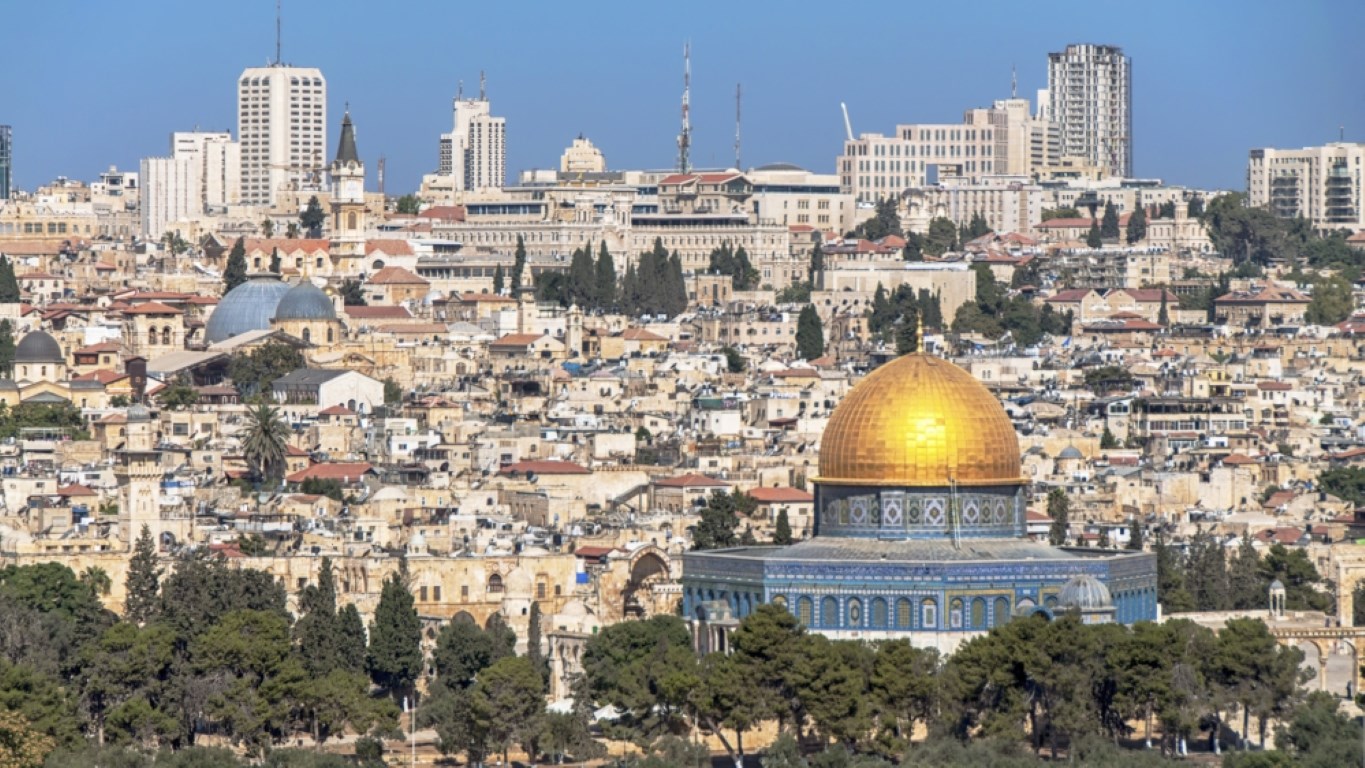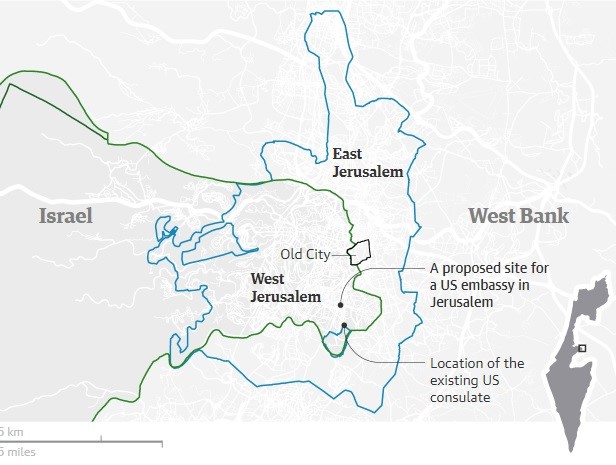The Jerusalem problem
February 24, 2018 | Expert Insights

The US State Department has announced that the country could be shifting its Israeli embassy to Jerusalem by May 2018. The announcement comes just months after US President Donald Trump officially recognized Jerusalem as Israel’s capital, amid controversy.
Background
The conflict between the people of Jewish ancestry and Palestinians can be traced back to Biblical times. Israel is the world's only Jewish state. The Jews staked claim for a land of their own due to religious reasons. They trace their origins to Abraham, who they consider their patriarch. A number of Jews migrated to Europe predating the Roman Empire. Though a prosperous commune, the Jews were subjected to a wide range of restrictions and discrimination.
Around late 19th century, there was a rise of nationalism amongst the Jewish people with many calling for a separate state. In February 1896, Theodor Herzl authored Der Judenstaat, a pamphlet that laid down the case for a modern Jewish state. This pamphlet would become one of the most important texts in the Zionist movement. Religion was used as the foundation for the claim. In the early 20th century, thousands of Jews emigrated to Palestine and established Kibbutz.
In 1947, United Nations adopted a plan to partition Palestine into Arab and Jewish sections. In the immediate aftermath, the war between Arab nations and Israel took place. The Arabs were initially on the offensive, but their military resources dried up when the UN declared an arms embargo on the region. In 1949, Israel signed a series of armistice agreements with the Arab nations involved. No peace treaties were signed and in 1967, Israel fought the decisive “Six Day War” against Egypt, Jordan and Syria.
Major wars such as the War of Attrition, Yom Kippur War and the Gaza War have been fought over the years. Nearly every effort by the international community to establish peace in the region has failed.

Analysis
On December 6th, 2017, US President Donald Trump pivoted from decades’ long US foreign policy and recognized Jerusalem as the capital of Israel. Trump’s announcement triggered a wave of protests and violence across the Middle East. In addition, the US administration announced that it would be withholding nearly half of the initial aid it was planning on giving to a UN agency that helps Palestinians. According to the US State Department, the nation would provide $60 million in aid but will withhold $65 million for now. The announcement not only incited violent protests across the world but also stalled ongoing efforts to broker peace in the region. Palestine announced that it will no longer be recognizing US’ efforts in the mediation process. The US State Department has now announced that the nation would be opening a new embassy in Jerusalem in May 2018. This has brought Trump’s plan forward by at least a year.
“We are excited about taking this historic step, and look forward with anticipation to the May opening,” U.S. State Department spokeswoman Heather Nauert said, noting that it will coincide with Israel’s 70th anniversary. One official said plans for May were simple: “A sign will be put up identifying the facility as the US embassy.”
The latest announcement came during a period when senior members of the Trump administration said that the Jerusalem move would not take place until late 2019. This, however, will coincide with Israel’s 70th anniversary. Israeli Prime Minister Benjamin Netanyahu hailed the announcement as “a great day for the people of Israel”.
Meanwhile, the Palestinian government has expressed disdain for the move. “This is an unacceptable step. Any unilateral move will not give legitimacy to anyone and will be an obstacle to any effort to create peace in the region,” said Nabil Abu Rdainah, a spokesman for the Palestinian President, Mahmoud Abbas, who is currently in the United States.
Assessment
Our assessment is that the rapid pace adopted by the US government may ultimately hinder the ongoing peace talks between Palestine and Israel. In addition, this would also affect the two-state solution and will likely not only provoke the feelings of Palestinians but those living in the Arab world. As the US does not have international support for this decision, it stands alone and defiant. Will this backfire?








Comments